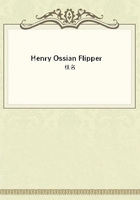
第83章
Not that it would affect our people, or that they care about it, but for his own good."**In all the places I visited after graduation I was treated with the utmost respect and courtesy except in Atlanta. The white people, with one exception, didn't notice me at all. All foreigners treated me with all due consideration. One young man, whom Iknew many years, who has sold me many an article, and awaited my convenience for his pay, and who met me in New York, and walked and talked with me, hung his head and turned away from me, just as I was about to address him on a street in Atlanta. Again and again have I passed and repassed acquaintances on the streets without any sign of recognition, even when I have addressed them. Whenever I have entered any of their stores for any purpose, they have almost invariably "gotten off" some stuff about attempts on the part of the authorities at West Point to "freeze me out," or about better treatment from Southern boys than from those of the North. That is how they treated me in Atlanta, although I had lived there over fourteen years, and was known by nearly every one in the city. In Thomasville, Southwest, Ga., where I was born, and which I had not seen for eighteen years, I was received and treated by the whites almost as one of themselves.
That "undress uniform" was a "cit" suit of blue Cheviot. The people there, like those in Atlanta, don't seem to know a black button from a brass one, or a civilian suit from a military uniform.
(From the Charleston (S.C.) News and Courier.)THE COLORED WESTPOINTER.
Lieutenant H. O. Flipper, the colored graduate of West Point, was entertained in style at Tully's, King Street, Tuesday night. The hosts were a colored organization called tile Amateur Literary and Fraternal Association, which determined that the lieutenant who will leave this city to-day to join his regiment, the Tenth Cavalry, now in Texas, should not do so without some evidence of their appreciation of him personally, and of the fact that he had reflected credit on their race by passing through the National Academy. Over forty persons were at the entertainment, to whom the lieutenant was presented by A. J. Ransier, the colored ex-member of Congress. The lieutenant responded briefly, as he has invariably done, and expressed his warm thanks for the courtesy shown by the association. A number of sentiments were offered and speeches made, and the evening passed off very agreeably to all, especially so to the recipient of the hospitality.
"Lieutenant Flipper expects to start to-day for Texas.
While he has been in this city he has made friends with whites and blacks by he sensible course he has pursued."(From the Charleston (S.C.) Commercial.)LIEUTENANT FLIPPER'S ENTERTAINMENT.
"The Amateur Literary and Fraternal Association, of which A. J. Ransier is the President, learning that Lieutenant Flipper, of the United States Cavalry, was preparing to depart to the position assigned him on duty on the plains in Texas, at once determined to give him a reception, and for this purpose the following committee was appointed to arrange the details and programme for an entertainment: J. N.
Gregg, W. H. Birny, A. J. Ransier, C. C. Leslie, and George A. Gibson.
"The arrangements were made, and the members of the association and invited guests to the number of some forty, of the most respectable colored people of Charleston, met last night at Tully's Hall, King Street, where a bounteous feast was prepared for the occasion. The guest, Lieutenant Flipper, soon arrived, and was introduced to the party, and, in the course of time, all sat down at the table, upon which was spread the most palatable dishes which the king caterer of Charleston could prepare. This was vigorously attacked by all.